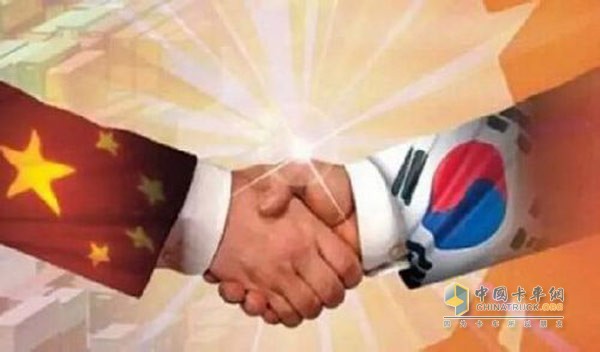From December 20, 2015, the China-Korea and China-Australia Free Trade Agreement officially came into effect, and the “people’s and animal resources†such as food, clothing, and cosmetics will all benefit first.
The reporter learned that after December 20th, China’s original cargoes under China's 6108 tariff lines and China's 1649 tariff lines will immediately realize zero tariffs; between China and Australia, 5,662 tariff lines. Australia originating goods immediately enjoy zero tariff under the Chinese origin of goods and tariff items under item 2402.
On January 1, 2016, the two agreements will implement a second tax reduction. After a certain transitional period, goods with 90% or more of China, South Korea and China, Australia and China will eventually realize zero tariffs, including auto parts.

Will China-Korea-China Free Trade Zone have zero tariffs to facilitate the export of parts and components?
“After adjustments, tariffs on auto parts for China and South Korea will be gradually phased out,†Jia Xinguang, an auto analyst, told reporters that the tariffs on auto parts between China and South Korea averaged about 10%.
Analysts believe that for this, the first benefit will be South Korean joint venture car companies in China, including Beijing Hyundai and Dongfeng Yueda Kia.
Jia Xinguang told reporters that the key components of Beijing Hyundai and Dongfeng Yueda Kia, especially automotive electronics and chips, are still the main source of imports from South Korea. Tariff cancellation will benefit these products.
However, for Korean-owned joint ventures that have been operating in China for many years, due to the advancement of localized production in China, more and more components have been produced in China.
“Most of our parts and components have already been domestically produced.†A source from Beijing Hyundai told reporters that as Beijing’s modern-scale domestic production has continued for many years, the localized parts supply system has become more mature.
For this, the situation of Dongfeng Yueda Kia is also similar.
Even so, after the abolition of auto parts tariffs, the purchase of parts and components of Korean-owned joint-venture car companies, especially whether new car parts gradually return to South Korea, remains a concern.
“It is still difficult to predict.†An informed source from Dongfeng Yueda Kia explained to the reporter that “parts procurement is a relatively complicated matter and it is difficult to make a large proportion of adjustments.â€
However, the impact of zero tariffs on the automotive industry exists in both China and South Korea. In the eyes of the industry, South Korean vehicle manufacturers can also choose to import components from China. Taking power batteries as an example, Samsung and LG are currently at the forefront, and related companies are actively implementing production in China.
“More than 80% of raw materials for power batteries are in China, and local production costs are even lower.†A person in charge of a battery company told the Daily Economic News that “after domestically made, Korean companies can also import from China.â€
In fact, the Sino-Korea Free Trade Area negotiations have experienced more than two years of discussions, and tariff adjustments to the auto industry have always been one of the controversies. Although the spare parts tariffs are released, the vehicle is still not listed as "tax exempt."
"South Korea is too close to China. General Motors, Renault and other automobile manufacturers all have production in South Korea." For this reason, Jia Xinguang told reporters, "If the tariffs on Korean vehicles are to be liberalized, it may have a great impact on local auto companies. ."
To this end, the reporter learned that in the current China Free Trade Zone negotiations, the vehicle is not included in the list of zero tariffs. "Because once you let go of a country, you also need to consider opening up to other countries." Jia Xinguang thinks.
In addition to the entire vehicle, after a transition period of up to 20 years, Korea will impose a zero tariff on 92% of China's original goods, and China will impose a zero tariff on 91% of the Korean origin goods; in addition, Australia will Within five years, zero tariffs are imposed on all Chinese origin goods. After a maximum transition period of 15 years, China imposes a zero tariff on 96.8% of the taxable Australian origin goods.
the genuine Parker fixed hammer Impact Crusher for the production of high quality, high strength cubical shaped aggregates in secondary or tertiary, low abrasion applications.
No shear or compressive crushing action takes place and every stone is broken by impact forces at its weakest point to provide an exceptionally strong and well shaped product.
Feed material is broken along natural lines of weakness
Soft material is smashed, leaving a stronger aggregate product
Choice of operating speeds to increase fines production, when required
All wear components are readily replaced, when required
Wear resisting manganese steel hammers are fitted to the rotor
Interchangeable wear resisting manganese steel breaker bars form the
Impact Crusher
Impact Crusher,Mobile Impact Crusher,Horizontal Impact Crusher,Impact Rock Crusher
Shenyang Sanland Mining Equipment Manufacture Co., Ltd. , https://www.sanlandcrusher.com